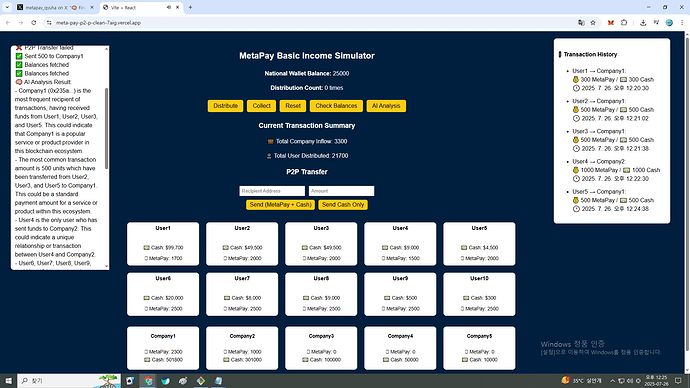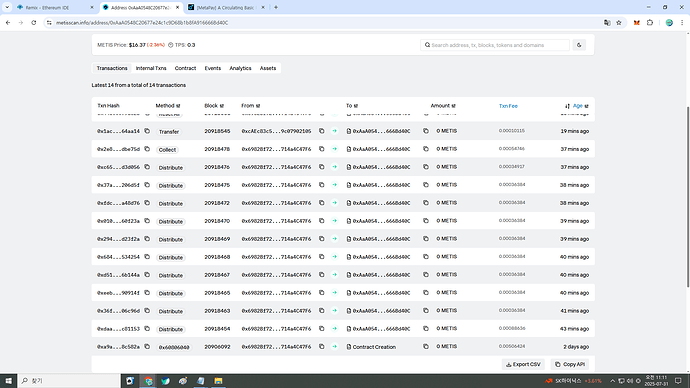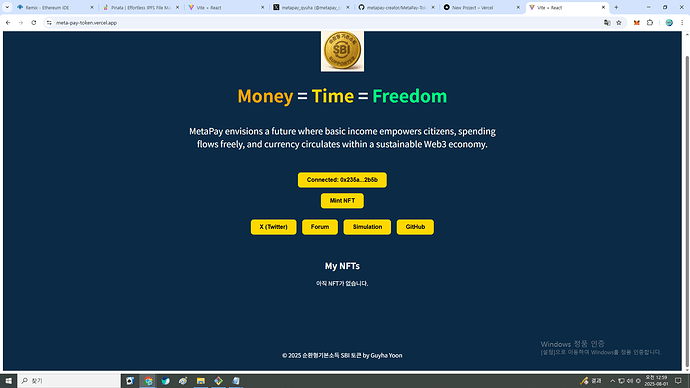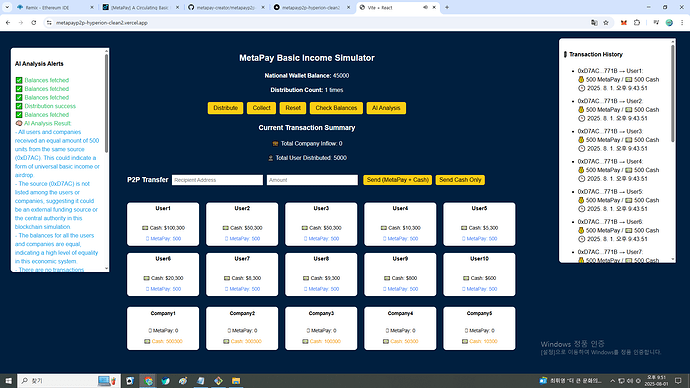Title:
![]() Exploring the Potential for a Circulating Basic Income Pilot in the Metis DAO Ecosystem
Exploring the Potential for a Circulating Basic Income Pilot in the Metis DAO Ecosystem
Content:
Hi Metis Community,
I’ve been developing a smart contract-based model for a Circulating Basic Income (CBI) —
a system where income is distributed, used within a community, partially recollected over time,
and redistributed again to sustain a continuous economic cycle.
Unlike traditional basic income models that rely on government budgets or taxation,
this system is designed to operate through smart contracts and a DAO-driven circular mechanism,
allowing economic value to flow and sustain itself without relying on external funding.
Originally, I conceptualized this model as a national policy initiative —
with the idea of proposing pilot programs in smaller countries, particularly in Europe,
where population size makes it feasible for such experiments to be conducted on a manageable scale.
However, the more I explored its structure,
the more I realized that DAO ecosystems — especially Metis, with its strong DAO-centric vision —
could serve as the perfect environment to test this model in the digital world.
Since Metis is dedicated to empowering DAOs as self-sustaining economic communities,
I believe this kind of circulating income pilot naturally fits with Metis’ long-term vision of a decentralized economy.
So, I’d like to propose this for open discussion:
![]() What if we tried a DAO-to-DAO circulating basic income pilot within the Metis ecosystem?
What if we tried a DAO-to-DAO circulating basic income pilot within the Metis ecosystem?
- Tokens would be distributed to DAO members
- Members would be encouraged to use them within DAO activities and the broader community
- After a set period, a portion of unused tokens would be automatically recollected by smart contracts
- The cycle would repeat through redistribution
DAOs already operate as community-driven micro-economies.
If this circulating income model proves viable within Metis,
it could become a significant step toward advancing DAO-based economic systems both online and in real-world applications.
I’m genuinely curious to hear your thoughts —
and I’d love to connect with anyone interested in exploring this idea further.
Let’s push the boundaries of DAO economics together!
![]() Just to add —
Just to add —
The latest version of my project is now fully operational.
![]() It supports fund distribution, P2P transactions, company-related transactions, and recollection between national wallets, individual wallets, and company wallets.
It supports fund distribution, P2P transactions, company-related transactions, and recollection between national wallets, individual wallets, and company wallets.
If you’re interested in testing it out,
please feel free to DM me or send an email.
I’d be happy to share the private keys of the test wallets (national, individual, and company accounts)
so you can try it firsthand.
Your feedback would be greatly appreciated!
Thank you!
#DAO #BasicIncome #MetisDAO #CirculatingEconomy #SmartContracts #Web3Governance #DAOExperiment #MetisCommunity**




